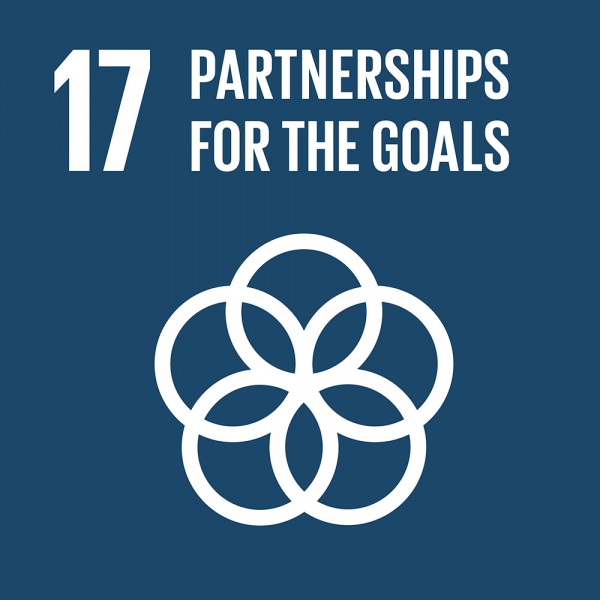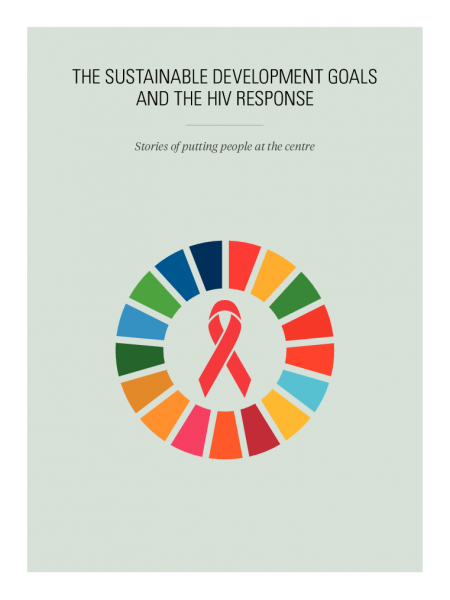The 2030 Agenda for Sustainable Development takes to scale what the AIDS response has been working towards for 30 years—a multisectoral, rights-based, people-centred approach that addresses the determinants of health and well-being. The individual stories in this series highlight the linkages between HIV and related Sustainable Development Goals (SDGs), each told from the personal perspective of people affected by HIV. The series paints a picture of how interconnected HIV is with the SDGs and how interdependent the SDGs are with each other. Most importantly, the stories show us the progress we have achieved with the AIDS response and how far we have left to go with the SDGs.
Klinika Bernardo, popularly known as the Sundown Clinic, is located along a bustling highway. It operates from 15:00 until 23:00, allowing a maximum number of clients to visit. “We cater to men who have sex with men from all over the Philippines,” said Leonel John Ruiz, head physician at Klinika Bernardo. “Only 40% of our clients are from Quezon City.”
In 2012, Quezon City became the first city in the Philippines to open a clinic providing services for men who have sex with men and transgender people. From the start, demand for services at the Sundown Clinic was high. Almost 250 HIV tests and pre- and post-test counselling services were carried out in its first two months of operation, and 18 people tested positive for HIV.
Although same-sex relationships are legal in the Philippines, there is a high degree of stigma and discrimination towards men who have sex with men. Fear of being outed and ostracized prevents many men from accessing traditional health services. Studies by city health officials show that two-thirds of men who have sex with men in Quezon City have never had an HIV test.
“This is my first HIV test. I do not know what to expect,” said one young man while filling out registration forms. “I tried to read up on HIV so I would have some background information, but it took me a while to gather the courage to come here.” The young man found the staff supportive and skilled at calming his nerves. People who test positive for HIV receive counselling on antiretroviral medicines and are accompanied by staff through their initial months of HIV treatment, which is free in the Philippines.
Quezon City now operates three Sundown Clinics and in the past few years has significantly increased investments in its HIV programmes. With nearly 3 million residents, Quezon City is the Philippines’ most populous urban centre and has made stopping a burgeoning AIDS epidemic a top priority. Mayor Herbert Bautista has encouraged city residents to know their HIV status, and he has taken an HIV test in public. The city’s effort to scale up HIV testing among men who have sex with men has proven successful, with such tests increasing 30 times. Forty per cent of the city’s HIV tests take place in Sundown Clinics, effectively proving that removing barriers increases access to services.
“Since we have been operating, the perspective has definitely changed,” says Leonel. “Before, we would have a hard time inviting people for testing. Now, most of our clients are walk-ins. People are personally and actively seeking information.” Several other local city governments are starting to adapt the Quezon City model and establish their own clinics.
The Sundown Clinic staff speak proudly of their achievements, but they look forward to closing shop one day. “I pray before sleeping,” says Adel, the only female peer educator at Klinika Bernardo. “I hope that one day there will be no one in need of our services. That’s what I am working for.”

SDG 17: Strengthen the means of implementation and revitalize the global partnership for sustainable development
Early in the AIDS response, in the absence of treatment options and the overwhelming scale of people affected by HIV, it was clear that a purely clinical response to the epidemic was not sufficient. Relatives, faith-based organizations and alliances of people affected by HIV stepped in to do what they could to help people die with dignity, to support the orphans, spouses and dependants left behind and to fight for a new way of doing things. Groups of vastly different people linked by the shared experience of the fear and stigma and horror of HIV and AIDS came together to demand that the response go beyond clinics, hospitals and the formal health service.
Embracing and expanding the concept of partnership was revolutionary, not for AIDS but also in the broader development sphere. Partnerships continue to be central to the AIDS response. Coordination and collaboration across a wide range of partners, including sex workers, scientists and social workers, helps to identify and use expertise more effectively, overcome barriers more quickly and allocate resources more efficiently. Partnerships increase awareness and knowledge and create a critical mass of power and support that help to influence policy-makers and spur stakeholders to take action.
The story of the Sundown Clinic in Quezon City in the Philippines embodies SDG 17—strengthen the means of implementation and revitalize the global partnership for sustainable development. The success of the original clinic and the subsequent addition of two more clinics demonstrate how inclusivity continues to define the AIDS response and provide the inspiration for successful partnerships between a wide diversity of stakeholders.



